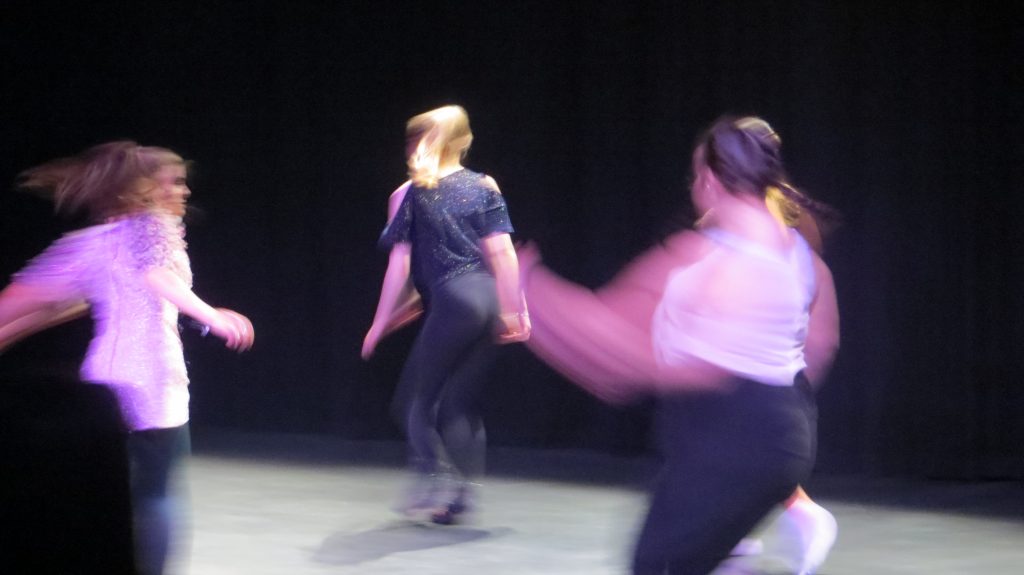Martin Heaney from University of East London’s Drama, Applied Theatre and Performance team shares insights from UEL session’s exploring Pathways and Progression Routes as part of the Creative Schools Symposium in November 2017.
Forging pathways and progression routes in the creative education sector? This was the focus of our first workshop for The Creative Schools Symposium in November. It proved to be a valuable opportunity for the Drama, Applied Theatre and Performance team at the University of East London to connect with local arts organisations and discuss their shared interests in how we can increase collaboration between us.
With numbers falling in arts subjects at A Level and at BTEC, ensuring that we can maintain our profile and recruitment from the local area is a priority for our programme. There are other reasons, too, which motivate us. 50% of our undergraduates are ‘first in family’ at university. Our staff have extensive experience working with students from diverse backgrounds. Our programme’s focus on theatre in the community and working with marginalised communities also drives our engagement in promoting participation in Higher Education among ‘hard to reach’ young people.
We don’t claim to have all the answers and listening to arts organisations priorities helped us reconsider what we offer: in particular progressing our development of student-led companies which can provide workshops for schools on ‘non-drama’ subjects, e.g. on technical skills or alternative careers beyond performing in the creative industries (a suggestion from different FE colleges and schools). Equally we can harness specific services more effectively in partnership with local providers, e.g. working with our Education and Community Outreach team (ECP) to offer curriculum development workshops for teachers in the performing arts or providing access to a series of free events and promotion activities at the university.
Our second workshop, focusing on Championing Youth Leadership acted as a powerful reminder both of the obstacles that many young people face in participating in the arts and as a platform for young people to put forward their ideas. It reminded us of the importance of working with parents and ensuring there are affordable offers for the arts for both them and their children. It also underlined the importance of never underestimating the creativity of young people in pursing their love of the arts. Contributions from Charlotte Wilson and Nee Morgan-Petch from the Croydon Youth Arts Collective, Anthony Grey from the Barbican / Guildhall School of Music & Drama, Adem Holness from Sound Connections, Fran Gkotsi, producer on youth-led Arts Award project with Sarah Bonnell school, and Mia Cunningham, student at UEL and previous Young Poet Laureate, all demonstrated how effective youth leadership is occurring with minimal intervention. Technology and digital platforms in particular, are allowing young people to research and share their work, whether its street poetry or music.
The role of young people as advocates in a key area that we would like to develop alongside student-led companies here at UEL. The event also provided an opportunity for our students to get inspiration from youth leaders and professionals. Mia Cunningham commented after the workshop:
“As a young person who is actively involved with the art and community work, I found it extremely interesting to be a part of the Creative School’s Panel. It truly was a wonderful experience being able to perform to a room full of such hard-working teachers, facilitators and people working directly with young people in the industry! It was so nice to see that young people in and around Newham have the opportunity to shine, whether that is alone or with the help of some great organisations for young people within the arts. An extremely worthwhile day that was filled with many questions, intrigue and new found connections!”
Multiple agencies have shared interests in targeting young people, particularly those not in education, employment or training (NEET). One key area we wish to explore is researching the pathways of ‘first in family’ students and developing ways to engage with them in their communities, e.g. in informal settings, youth clubs or ‘foyers’ which may act as safe spaces and areas where the creative arts can be employed to generate interest in further and higher education. Currently, I am applying for funding to develop research bids in this area.
Please do contact me for further information by emailing m.heaney@uel.ac.uk.
